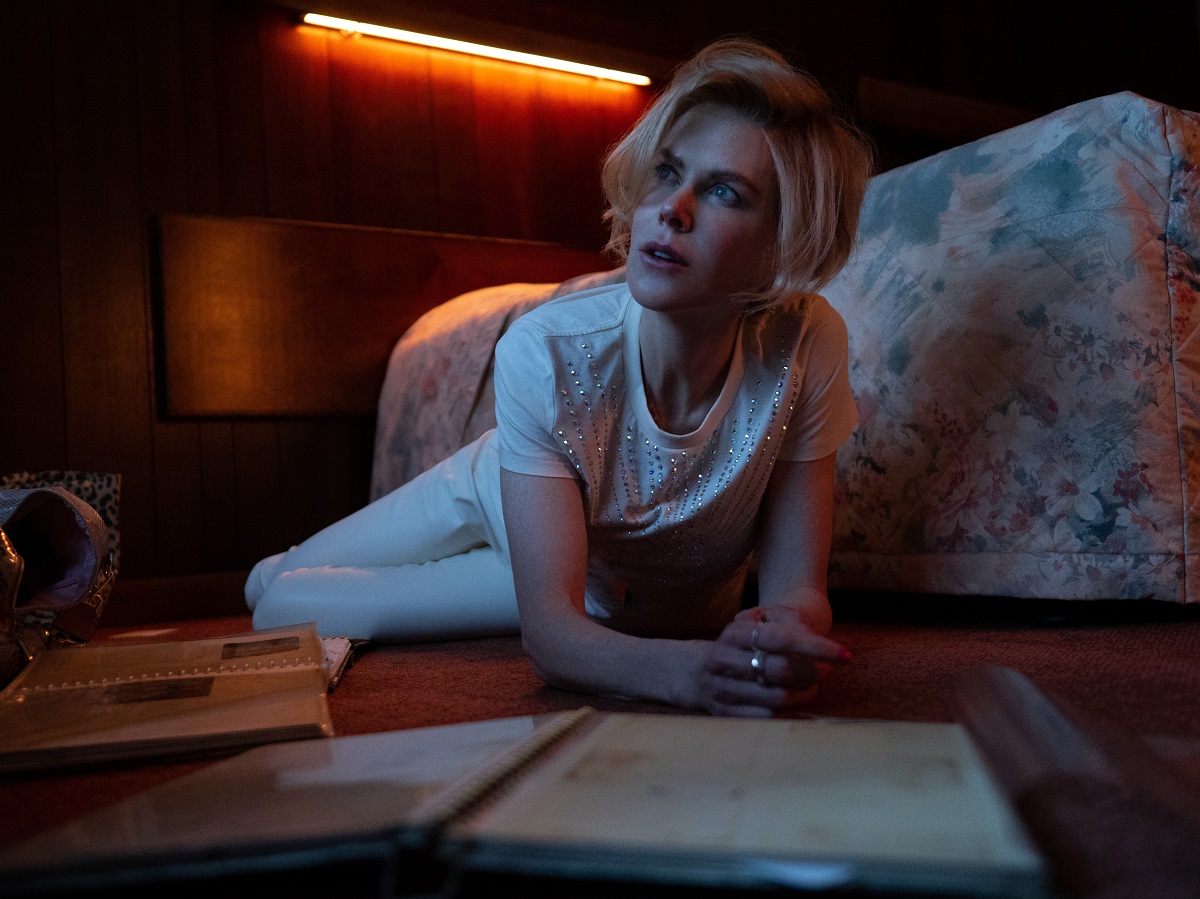The underlying premise of “Roar,” Apple TV+’s latest anthology series, is that women, for all their universal concerns and unique challenges, are not a monolith.
Adapted from eight of the 30 stories contained within Cecelia Ahern’s whimsical 2018 short story collection of the same name, the show takes a pretty simple tack: extrapolate an experience or anxiety most women go through, filter it through the lens of magical realism, and add some A-list stars to center it around. The results are hit-or-miss, as any anthology tends to be, but the overall effect is charming and incisive (even as the show as a whole suffers from some frustrating blind spots).
Aiding things, of course, is the fact that the show is spearheaded by “GLOW” creators Liz Flahive and Carly Mensch, clear experts in balancing that delicate tightrope of tones such a darkly comic show about women’s experiences requires. And indeed, there’s something of the feel of their prior show here, not just from the many repeating cast members (Alison Brie, Betty Gilpin, Chris Lowell) but from the way they can prod at the many frustrations of modern womanhood from multiple perspectives (and with no small amount of wit).
The first episode, “The Woman Who Disappeared,” stumbles a bit out of the gate, converting Ahern’s original story about the intangibility of life as a woman into a more pointed critique of the invisibility of Black women in entertainment, and the hollowness of Hollywood allyship. Issa Rae plays a New York memoirist flown out to Los Angeles to take development meetings about an upcoming adaptation of her childhood memoir, only to find the world around her increasingly refuses to perceive her. The facial-recognition software for the studio building doesn’t detect her face, and when the room of well-meaning white executives (including Nick Kroll) asks her for feedback, they act as if she never spoke.

It’s a scintillating idea, and the episode convincingly evokes the sub-surface tension Black creatives (especially Black female creatives) feel when they try to work in the system, and find themselves in the hands of white gatekeepers. (Kroll et al.’s big idea? Turn her memoir, which includes her father’s murder by police, into an immersive VR experience for white consumption. “It’s an extraordinary opportunity for empathy,” one exec patronizingly purrs.) Unfortunately, this is the episode that strains to fit all of its concerns into its 30-minute runtime, and the deeper implications of these evocative ideas go painfully underexplored. That said, Channing Godfrey Peoples continues a great streak of work after “Miss Juneteenth,” her stylish direction making the most out of the “Twilight Zone” tension of the proceedings.
Most of the other episodes fit more snugly within that half-hour brief, though, and the best entries in the season are the ones that run full-tilt toward magical realism. “The Woman Who Was Kept on a Shelf” is a real highlight, with Gilpin as an image-obsessed trophy wife who finds that status literalized when her businessman husband (a benignly cruel Daniel Dae Kim) builds a high shelf in his terracotta office for her to sit on all day and all night. “All you have to do is sit there and be loved,” he coos, as we see the existential hell that comes when women are literally put on a pedestal. Gilpin’s fantastic here, with a brilliant, Chaplinesque physicality she puts to great use both on and off the shelf; the latter stretch of the episode, where she discovers the liberatory joy of making a life for herself (complete with a dance sequence with a sundress on the beach), is one of the best sequences of the entire anthology.
Other strong entries include “The Woman Who Returned Her Husband,” in which an older Indian woman (The always-great Meera Syal) chooses to return her unexciting husband (Bernard White) as if he were a defective Costco lawnmower. It’s a charming lark about the road not taken and the transactional nature of romantic relationships. “The Woman Who Was Fed By a Duck” sees Merritt Wever as a frustrated single woman in her thirties who finally finds the manduck of her dreams (voiced by Justin Kirk), only to slowly find out he’s just as passive-aggressive and manipulative as any man on the prowl. And the season closer, “The Woman Who Loved Horses,” is a delightful, “True Grit”-esque Western about Jane (Fivel Stewart), a young Chinese-American cowgirl who poses as a boy to seek revenge against the outlaw (Alfred Molina) who killed her father. The real secret sauce to that episode is the ebullient presence of “Moonrise Kingdom”’s Kara Hayward as Millie, the skittish preacher’s daughter who nonetheless accompanies Jane on her journey and proves herself incredibly resourceful. Together, they see the violent way men navigate the Old West, and imagine something better for themselves.

While the single-minded concepts of each episode can sometimes prove limiting, they lend each hour a singular focus that only occasionally delves into lecture. “The Woman Who Ate Photographs” treats you to the bizarre sight of Nicole Kidman binging Polaroids with a starved woman’s greed, but underpins that with a story of aging, loss, and memory (and gifts Kidman with a beautiful scene partner in Judy Davis as Kidman’s acerbic, dementia-riddled mother). The Cynthia Erivo-starring “The Woman Who Found Bite Marks on Her Skin” traverses similar tensions as Rae’s episode about the limitations and condescension Black women experience in professional settings, dovetailed with the increased work-life challenges working mothers face.
But for all of “Roar”’s exploration of the diversity of womanhood, it’s a bit disappointing to see that all of the stories in this first season focus exclusively on cis characters. Sure, there’s a bit of gender fluidity in Jane’s cross-dressing in “The Woman Who Loved Horses,” but the show is woefully blind to the stories of trans women. (A shame, really, since there’s already a story in Ahern’s book, “The Woman Who Found the World in Her Oyster,” centered around a trans woman.) Perhaps that one will get adapted in a future season; here’s hoping it will.
Don’t expect “Roar” to dig too deep into the complexities of the issues it raises; the episodes, quick and droll and diverting, are simply reminders to Those Who Get It that issues of sexism, ageism, patriarchy, and systemic violence are still commonplace. But whether you crave the catharsis of an abusive boyfriend being carted off by Animal Control, or the rush of solving your own murder (as Alison Brie does in one cute spin on the police procedural), “Roar” has enough darkly comic delights to make you shout.
Entire season screened for review.












